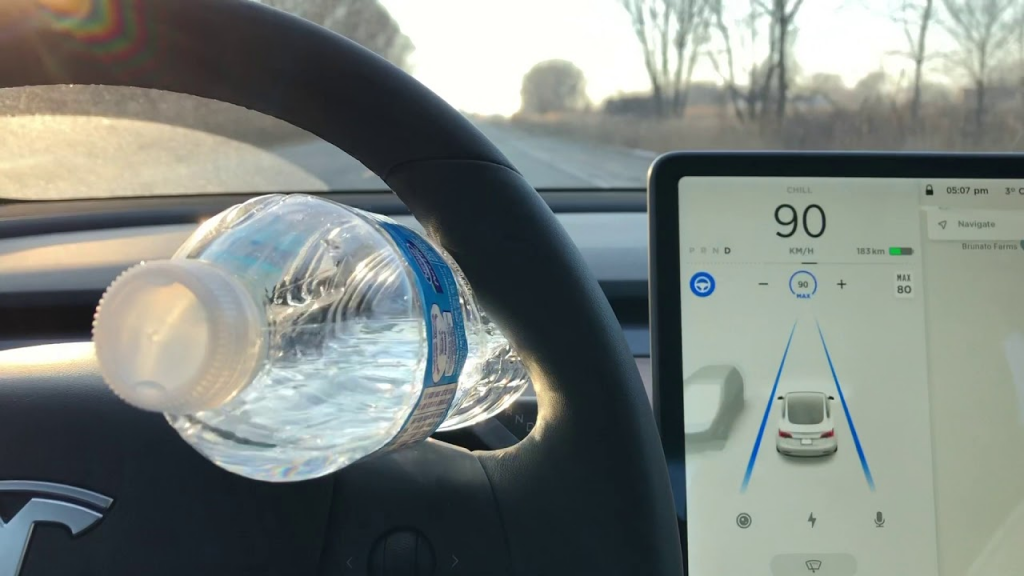In a bid to outsmart their own cars, Tesla owners have resorted to an ingenious, albeit dangerous, trick: using cheap steering wheel weights to fool their vehicles into thinking they’re keeping their eyes on the road.
With Tesla’s Full Self-Driving (FSD) technology gaining traction among drivers, these seemingly innocuous weights have gained astonishing popularity. Initially marketed as ordinary accessories—phone holders or devices for alleviating shoulder pain—they harbor a clandestine purpose. Behind their unassuming facade lies a clever design specifically intended to facilitate the abandonment of the steering wheel, while the vehicle attempts to navigate autonomously. This surreptitious practice flies in the face of Tesla’s insistence that drivers maintain an unwavering focus, poised to regain control at a moment’s notice.
The recklessness of this behavior becomes all the more harrowing when considering the disturbing rise in fatalities linked to Tesla Autopilot. As these deceptive weights flood online marketplaces, such as Amazon and Alibaba’s AliExpress, it becomes evident that their true purpose is far from virtuous.
While certain comments on these listings have been scrubbed clean in the wake of revelations from The Washington Post’s investigation, the remaining testimonials provide a glimpse into the nefarious intentions concealed behind these misleading descriptions.
One Amazon review about a product called the “Steering Wheel Glass Breaker” candidly declares, “If you use it in city streets then it’ll work without any alerts,” explicitly highlighting the weight’s capability to circumvent the system’s warnings. Another comment relays an individual’s experience, asserting that they traveled 38 miles without interruption from the Autopilot alert.

These firsthand accounts leave little room for ambiguity, indicating a clear intention to exploit Tesla’s safety measures, regardless of the potential risks.
It is paramount to underscore that Tesla’s Autopilot features are far from infallible and have been implicated in numerous fatal collisions. By employing these inexpensive weights, not only do drivers put their own lives in peril, but they also endanger the lives of others sharing the road.
Philip Koopman, an esteemed professor at Carnegie Mellon University with a quarter-century of experience studying autonomous vehicle safety, sheds light on the predictable nature of this predicament. He remarks, “When Elon Musk repeatedly proclaims that the car is supposed to drive itself, that’s what people will hear. How do you expect them to behave?”
Amazon, one of the platforms facilitating the sale of these deceptive weights, asserts that it is making earnest efforts to tackle the issue head-on. An Amazon spokesperson reiterates the company’s staunch opposition to illegal or deceptive practices, assuring that appropriate actions are being taken against sellers who engage in factual misrepresentations to customers.

All in all, the utilization of inexpensive steering wheel weights by Tesla owners to outmaneuver the requirement of sustained hand-to-wheel contact represents a dangerous practice. While online marketplaces like Amazon strive to combat the distribution of these products, their ubiquity poses an imminent threat to road safety.
It is crucial to remember that Tesla’s Autopilot technology necessitates unrelenting attentiveness and readiness to intervene, as its capabilities are far from flawless.


